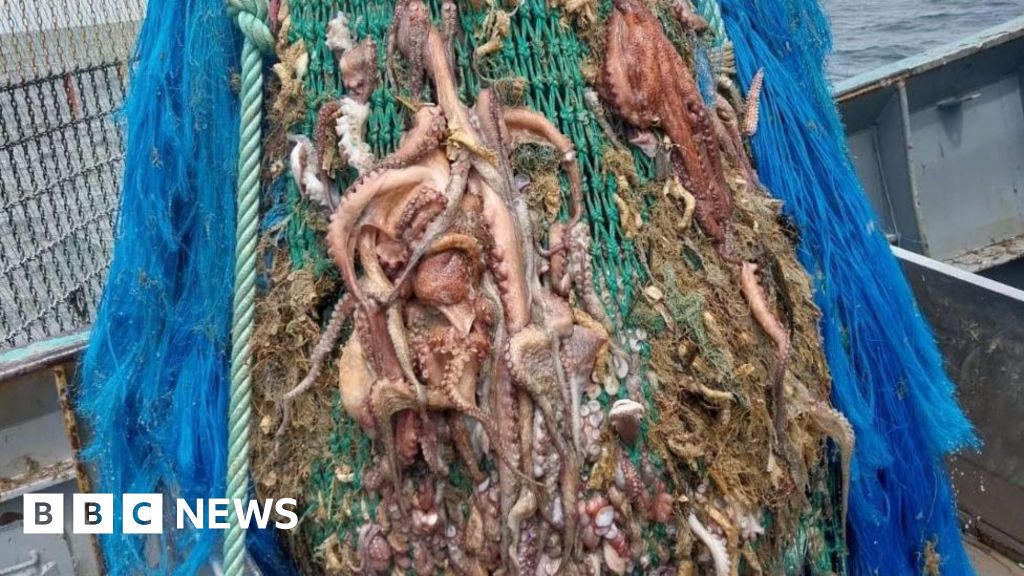- Leadership
100 photos from Palestine
时间:2010-12-5 17:23:32 作者:Green 来源:Startups 查看: 评论:0内容摘要:“If the U.S. is interested in making itself healthier again, how is it going to know, if it cancels the programs that helps us understand these diseases?” said Graham Mooney, a Johns Hopkins University public health historian.“If the U.S. is interested in making itself healthier again, how is it going to know, if it cancels the programs that helps us understand these diseases?” said Graham Mooney, a Johns Hopkins University public health historian.
Before the vaccine was introduced in 1963, the U.S. saw someper year. Now, it’s usually fewer than 200 in a normal year.

Usually, most measles cases come to the U.S. from abroad. This is why high vaccination rates are important. When 95% or more people are vaccinated, entire communities are considered protected from the virus, which is important for people who are too young or who cannot get the vaccine due to health issues.KENNEDY, in a CBS interview posted April 9, discussing death of 8-year-old child in Texas who had measles: “The thing that killed (her) was not the measles, but it was a bacteriological infection.”THE FACTS: Two children in Texas have died — both from measles complications, according to the Texas State Department of Health and Human Services. The state health department has made clear that the children were not vaccinated and had no underlying conditions. Doctors at University Medical Center in Lubbock who treated the 8-year-old said she died of “measles pulmonary failure.”

Claiming that patients die of complications and not the actual disease that led to them is a tactic that anti-vaccine advocates have used to undermine Texas health experts since the first child died of measles in March — and in other outbreaks before that. It’s also a talking point that Kennedy, who spentas one of the world’s leading anti-vaccine activists,

Measles complications can include pneumonia, brain swelling and other respiratory or neurological complications, which can lead to death in 1 to 3 of every 1,000 children who are infected, according to the U.S. Centers for Disease Control and Prevention.
“have treated and healed some 300 measles-stricken Mennonite children using aerosolized budesonide and clarithromycin.”THE HAGUE, Netherlands (AP) — The top United Nations court on Monday dismissed a
accusing the United Arab Emirates of breaching the genocide convention by arming and funding the rebel paramilitary Rapid Support Forces in the deadly Sudanese civil war.Judges found that the International Court of Justice lacked the authority to continue the proceedings. While both Sudan and the UAE are signatories to the 1948 genocide convention, the United Arab Emirates has a carveout to the part of the treaty that gives The Hague-based court jurisdiction.
“The violent conflict has a devastating effect, resulting in untold loss of life and suffering, in particular in West Darfur. The scope of the case before the court is, however, necessarily circumscribed by the basis of jurisdiction invoked in the application,” Yuji Iwasawa, the court’s president said, reading out the decision.Both Sudan and the UAE are signatories to the
- 最近更新
- 2025-07-07 08:39:34Hezbollah watches on as Iran and Israel battle, for now
- 2025-07-07 08:39:34Gen Z’s particular twist on slacking could signal an insecurity about their job
- 2025-07-07 08:39:34Eni CEO Claudio Descalzi: ‘I hate to be politically correct’
- 2025-07-07 08:39:34Iran defends its second barrage of missiles at Israel as self-defence
- 2025-07-07 08:39:34How the culture war is remaking advertising
- 2025-07-07 08:39:34This AI is amazing and there’s only a few embarrassing, critical errors
- 2025-07-07 08:39:34Tehran is in shock – and we have fled with heavy hearts
- 2025-07-07 08:39:34Gen Z’s particular twist on slacking could signal an insecurity about their job
- 热门排行
- 2025-07-07 08:39:34deadliest plane crash in the U.S
- 2025-07-07 08:39:34UFC: Tom Aspinall crowned undisputed heavyweight champ as Jon Jones retires
- 2025-07-07 08:39:34How to recession-proof your retirement: 7 smart strategies to fortify your nest egg
- 2025-07-07 08:39:34EU squeezes Russia financially to reach ‘peace through strength’ in Ukraine
- 2025-07-07 08:39:34even the magazines you subscribe to
- 2025-07-07 08:39:34Iran defends its second barrage of missiles at Israel as self-defence
- 2025-07-07 08:39:34Best car insurance companies for 2025: AOL editor picks for rates, claims and more
- 2025-07-07 08:39:34Business Book of the Year 2025
- 友情链接
- How a ‘Gold Mafia’ is looting Southern Africa, washing dirty cash South Korea bars two former acting presidents from overseas travel Deadly floods in Eastern Australia as torrential rains continue Can you find these Palestinian cities? Liverpool car ramming wounds dozens, driver arrested for attempted murder To love a child who joined ISIS Why are the US and EU struggling to reach a trade deal? Hajj pilgrimage in Saudi Arabia to begin on June 4 Venezuela election results: Who lost, won and what next? Fact check: Do Trump’s ‘white genocide’ claims to Ramaphosa hold up? Japan faces a ‘rice crisis’ as price nearly doubles for food staple A lens on poverty and the environment: Sebastiao Salgado is dead at age 81 Barcelona’s Lamine Yamal signs new six-year contract Over 400 Rohingya feared drowned in two shipwrecks off Myanmar coast: UN Liverpool car ramming casts ‘dark shadow’ over victory parade ‘Deliberate massacre’ in Gaza as starving Palestinians seek Israeli-US aid The US has $36 trillion in debt. What does that mean, and who owns it? Guess who India, Pakistan and Iran are all wooing? The Taliban What is the Golden Dome defence system Trump announced? Guess who India, Pakistan and Iran are all wooing? The Taliban M23 accused of possible ‘war crimes’ in eastern DRC: Rights group Venezuela election results: Who lost, won and what next? Can you find these Palestinian cities? US envoy to Hamas: ‘can’t deal’ with people holding captives Aftermath of deadly US air strikes on Yemen Trump bars Harvard international enrolment: How many students will it hurt? International Tea Day: Spilling the tea on unusual brews around the world Fact check: Do Trump’s ‘white genocide’ claims to Ramaphosa hold up? Humans outrun robots at Beijing half-marathon Australia dust storm turns town orange
